Opzoeken
30 - 45 van 3120 nieuws bekijken
-
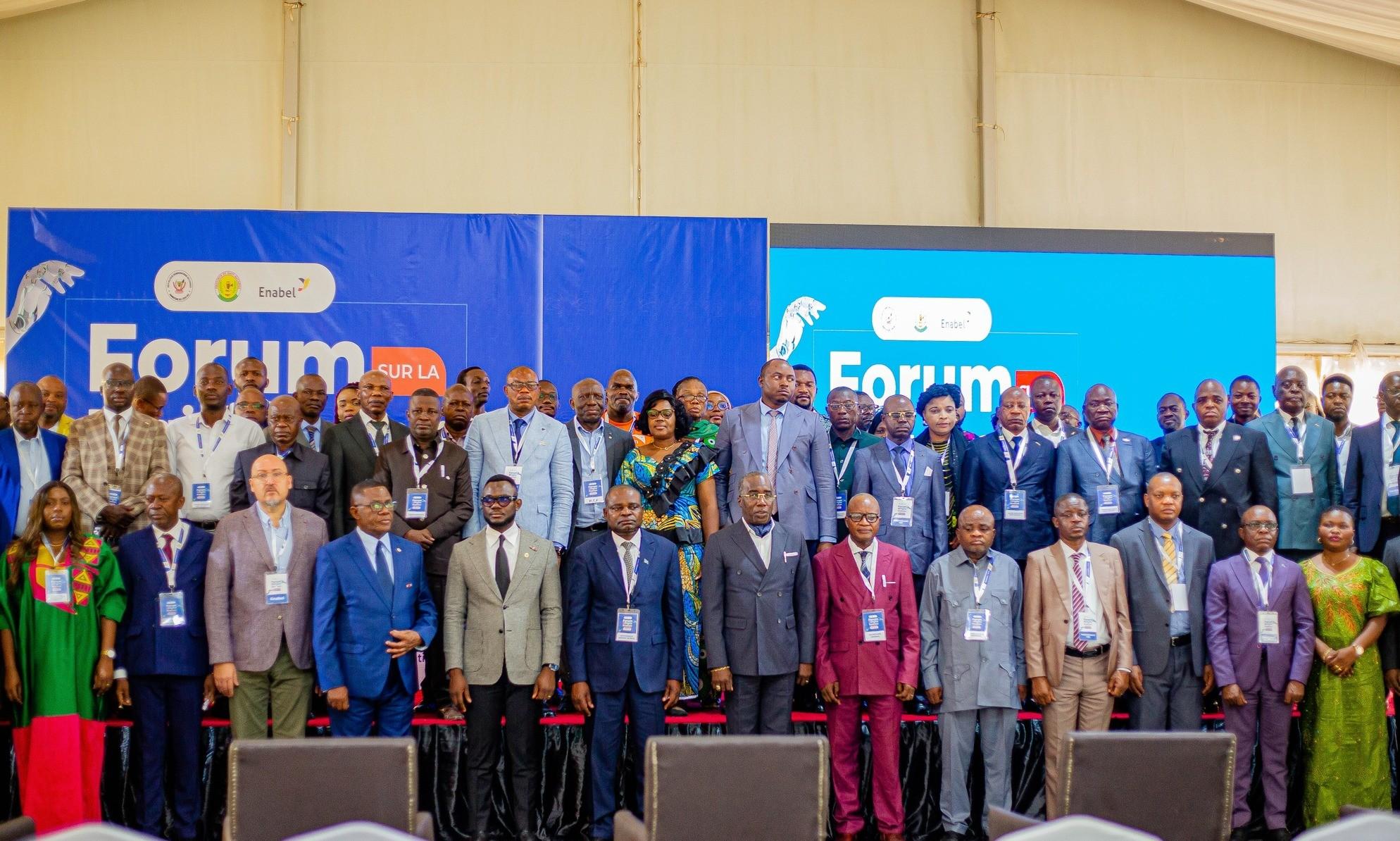
En RDC, l’école passe au numérique
Paola VANGU TSAKALA | 09/01/2026
Digitalisation de l’éducation : Lubumbashi au cœur de la transformation numérique du système éducatif congolais.Un forum stratégique pour accélérer l’intégration des TIC : du 11 au 13 décembre 2025, la ville de Lubumbashi a accueilli un forum consacré à la digitalisation de l’éducation, placé sous le thème : « Le rôle des TIC dans le système éducatif congolais ». Organisé avec la Division provinciale de la province éducationnelle Haut-Katanga 1, avec l’appui du projet Éducation de base (Edubase), cet événement visait à accélérer l’intégration des Technologies de l’Information et de la Communication (TIC) dans le système éducatif national. Représentant la ministre d’État, ministre de l’Éducation nationale et Nouvelle Citoyenneté, Raïssa Malu, le Secrétaire général a.i., Odon Mulanda, a rappelé que cette initiative s’inscrit dans le Plan Quinquennal 2024-2029. Celui-ci ambitionne de moderniser les infrastructures éducatives, de renforcer les compétences des acteurs du secteur et d’améliorer la gouvernance du système éducatif en RDC. Le forum a mis en lumière des avancées majeures, notamment l’utilisation de l’intelligence artificielle dans la correction des examens d’État et l’adoption de la technologie Blockchain pour sécuriser les diplômes. Ces innovations traduisent une transformation en profondeur, visant à rendre le système éducatif plus efficace, plus transparent et mieux adapté aux défis du XXIᵉ siècle. Former pour réussir la transition numérique Ce cadre d’échanges a également permis de plaider pour un investissement accru dans les formations professionnalisantes, indispensables au développement des compétences requises par cette mutation numérique. Considéré comme une étape charnière, le forum a favorisé l’harmonisation des visions, le renforcement des capacités et la définition d’orientations stratégiques pour positionner l’éducation congolaise comme un levier central du développement à l’ère digitale.
-
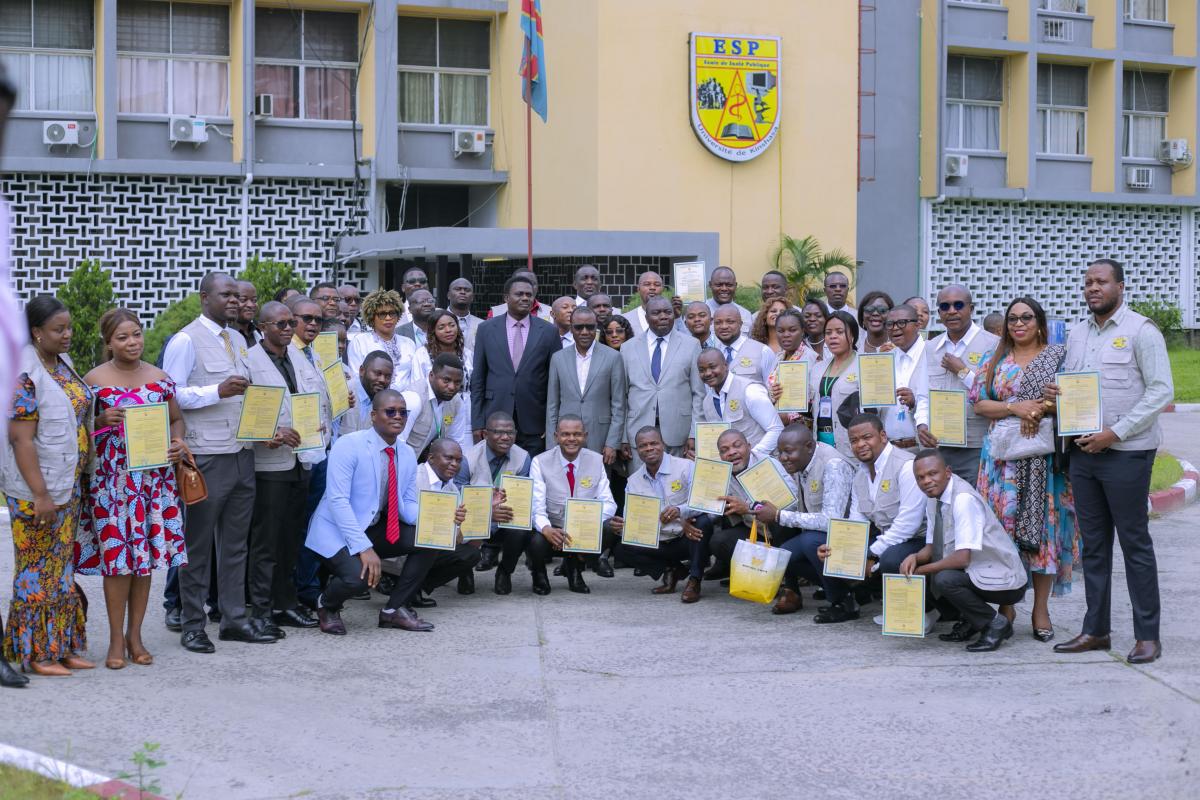
Accès aux soins de santé : la RDC forme ses médecins‑conseils
Paola VANGU TSAKALA | 09/01/2026
Une étape clé pour la mise en œuvre de la Couverture santé universelle en RDCLa remise des certificats aux médecins conseils formés marque officiellement leur entrée en fonction, désormais mieux outillés pour soutenir la mise en œuvre de la couverture santé universelle (CSU). Leur engagement sur le terrain devra se traduire par une amélioration tangible de l’accès, de la qualité et de l’équité des soins pour la population congolaise. La cérémonie de clôture de la formation, organisée le 12 décembre par le ministère de la Santé publique, Hygiène et Prévoyance sociale, en collaboration avec l’École de Santé publique (ESP) de l’Université de Kinshasa et avec l’appui financier d’Enabel, visait à doter ces médecins conseils des compétences indispensables à l’application effective de la CSU. Les médecins conseils au cœur de la réforme du système de santéActeurs centraux de cette réforme structurelle, les médecins conseils jouent un rôle clé dans la garantie de la qualité des soins, la protection financière des populations et la régulation des dépenses de santé. Cette initiative répond à la nécessité de disposer de cadres qualifiés capables d’accompagner le déploiement de l’assurance maladie obligatoire et d’en assurer la viabilité. Elle constitue ainsi un levier majeur de la transformation du système sanitaire congolais.Un programme intensif pour des compétences opérationnellesPendant sept semaines, cinquante (50) médecins conseils ont suivi un programme intensif axé sur la qualité des soins et la protection sociale. Pour Emmanuel Lukombe, « cet événement marque une étape cruciale dans la formation des médecins conseils pour notre pays afin d’assurer la continuité de l’assurance maladie obligatoire avec un personnel qualifié. Nous sommes convaincus qu’après cette formation, ils auront un impact réel sur le terrain ». S’exprimant au nom des apprenants, le docteur Joseph Mukwege a salué la pertinence du dispositif : « Le programme de cette formation constitue l’un des piliers du développement d’une assurance maladie et d’une assurance santé nationale. Il vise à renforcer la régulation et l’efficience des dépenses de soins de santé dans le cadre de la couverture santé universelle ».
-

Former ensemble pour l’emploi en RDC : le secteur privé au cœur des solutions
Paola VANGU TSAKALA | 09/01/2026
Dans les provinces minières du Haut-Katanga et du Lualaba, où la demande en compétences qualifiées demeure élevée, la synergie entre entreprises privées, institutions de formation et pouvoirs publics constitue un levier essentiel pour l’employabilité et le développement économique local. C’est dans cette dynamique que la Fédération des Entreprises du Congo (FEC), en collaboration avec la Coordination Haut-Katanga & Lualaba, a organisé le 25 novembre 2025 à Lubumbashi une table ronde sur l’engagement du secteur privé. Cette rencontre visait à fédérer les différents acteurs autour d’une vision commune : co-construire des projets de formation et d’insertion professionnelle alignés sur les besoins réels du marché local. Cette initiative a également permis de présenter les stratégies déployées par Enabel pour renforcer les partenariats avec le secteur privé, ainsi que plusieurs exemples de collaborations gagnant-gagnant, illustrant l’impact positif d’une approche concertée sur la formation, l’emploi et la compétitivité des entreprises.
-
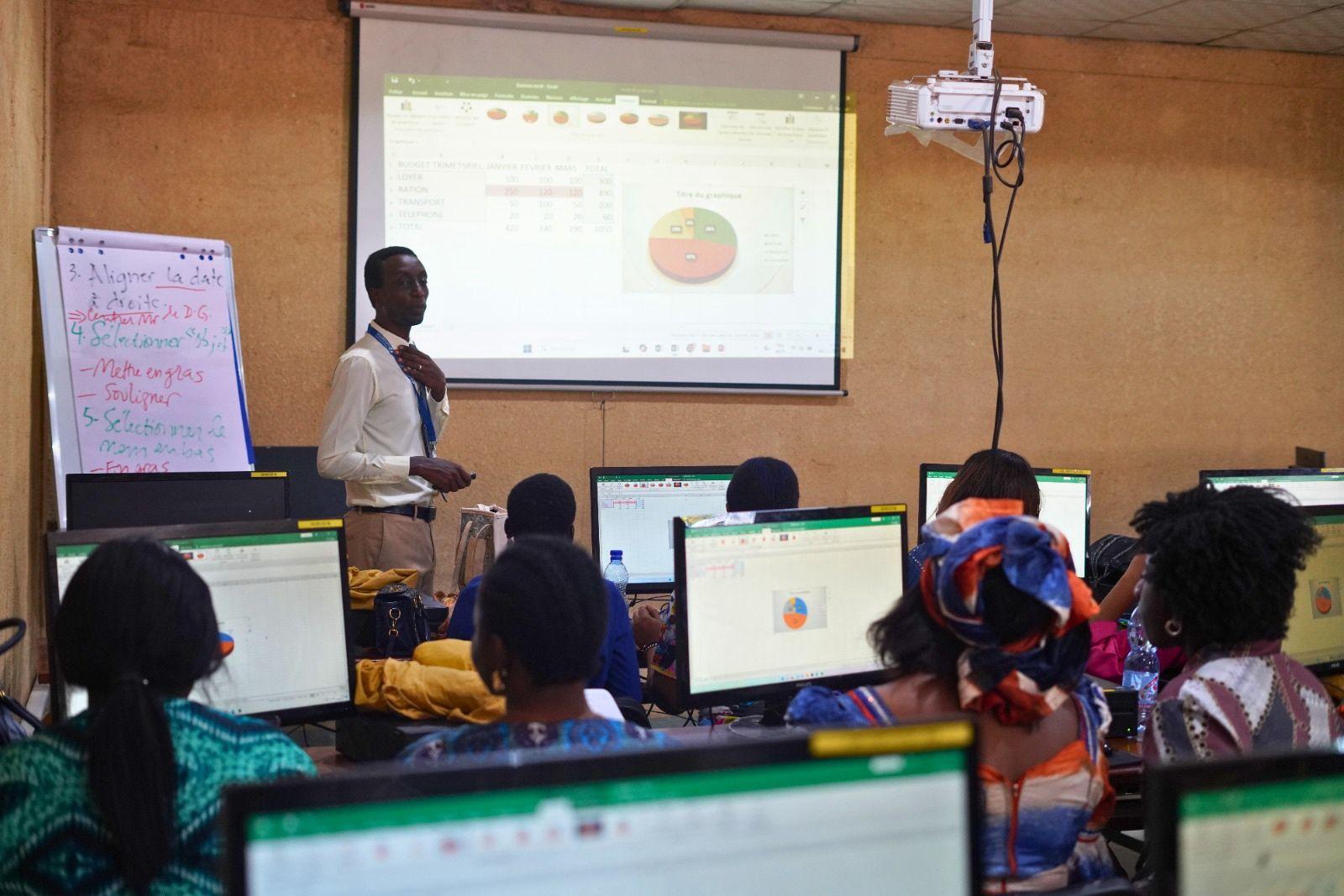
En RDC : accélérer l’inclusion numérique grâce à la stratégie D4D
Paola VANGU TSAKALA | 09/01/2026
La transformation digitale s’impose aujourd’hui comme un levier incontournable du développement. Pour y répondre, Enabel déploie sa nouvelle stratégie D4D – Digitalisation pour le Développement, visant à renforcer les compétences numériques de base des jeunes, des femmes, des enseignants et des techniciens. Au cœur de cette stratégie, le programme ICB (Informatics and Computer Basics), mis en œuvre en partenariat avec la STMicroelectronics Foundation, permet l’acquisition de compétences numériques essentielles, adaptées aux réalités locales et aux besoins du marché du travail. Former les formateurs pour un impact durableDu 20 au 28 novembre, une formation immersive s’est tenue au Centre de Ressources du Haut-Katanga, réunissant une dizaine de formateurs issus de différents centres appuyés par Enabel. Cette session a permis de renforcer à la fois leurs compétences techniques et pédagogiques, afin d’assurer une transmission efficace des modules ICB et Tablet for Kids auprès des apprenants.L’inclusion des femmes au cœur de la démarcheUn accent particulier a été mis sur l’autonomisation numérique des femmes, avec l’organisation d’une première formation dédiée à vingt apprenantes du projet Vroom Mama. Celles-ci ont été initiées à l’utilisation d’outils numériques appliqués à la conduite d’engins lourds, notamment les technologies embarquées telles que le GPS. Cette approche innovante vise à améliorer leur employabilité, à renforcer leur autonomie professionnelle et à favoriser leur insertion dans des secteurs traditionnellement masculins.Réduire la fracture numérique pour un développement inclusifLa réduction de la fracture numérique demeure un enjeu majeur pour faciliter l’accès à l’emploi et accompagner les jeunes et les femmes vers des opportunités professionnelles durables. À travers la stratégie D4D, Enabel réaffirme son engagement en faveur d’un développement inclusif, où le numérique devient un véritable moteur d’égalité des chances.
-
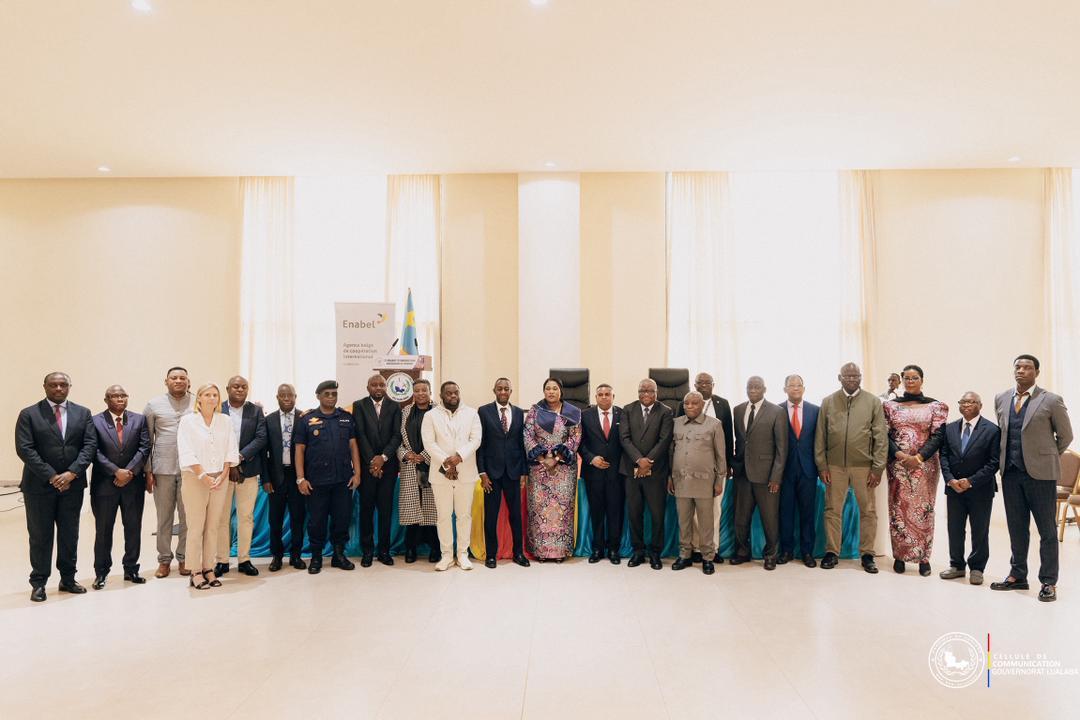
Gouvernance locale : la RDC mise sur les compétences publiques
Paola VANGU TSAKALA | 09/01/2026
Du 10 au 19 novembre 2025, près de 70 cadres issus du Gouvernement provincial, de l’Assemblée provinciale ainsi que des services techniques déconcentrés ont pris part à une session de formation dédiée au renforcement des capacités de l’administration publique dans la province du Lualaba (*). Animée par deux experts du cabinet I&D (Institutions et Développement) et du CEDA (Centre d’Études et de Gestion du Développement en Afrique), cette initiative, lancée par la Gouverneure Fifi Masuka, a été organisée par le Gouvernorat du Lualaba avec l’appui du projet d’Appui Institutionnel au niveau provincial.Cette formation visait principalement à outiller les participants sur les principes fondamentaux de la décentralisation, les bases de la bonne gouvernance, ainsi que les valeurs d’éthique et de déontologie dans la gestion des affaires publiques. À travers ce renforcement des compétences, la province du Lualaba pourra s’appuyer sur une administration plus performante et plus professionnelle, capable de conduire efficacement l’action publique dans le respect des cadres normatifs et légaux, conformément à la loi du 31 juillet 2008 (Loi n°08/012) relative à la libre administration des provinces.À noter que cette session s’inscrit dans une dynamique plus large de renforcement institutionnel, faisant suite à une formation similaire organisée du 27 octobre au 5 novembre 2025 à l’intention des cadres de la province du Haut-Katanga.(*) La province du Lualaba est une subdivision située au sud de la république démocratique du Congo. Elle est issue du démembrement de l'ancienne province du Katanga effectivement intervenu en 2015. Elle a pour chef-lieu Kolwezi.
-

RDC : des coopératives pour l’autonomie des maraîchères au Haut‑Katanga
Paola VANGU TSAKALA | 09/01/2026
L’Économie Sociale et Solidaire au service de l’autonomisation des femmes maraîchères du Haut-Katanga: valoriser le rôle des femmes à travers un modèle économique inclusifLe Haut-Katanga est depuis 2015 une province de la république démocratique du Congo à la suite de l'éclatement de la province du Katanga 1. Il se situe au sud-est du pays, à la frontière avec la Zambie.En reconnaissance du rôle essentiel que jouent les femmes dans le tissu socio-économique et culturel du Haut-Katanga, une initiative structurante a été mise en œuvre afin de renforcer leur autonomisation : la promotion de l’Économie Sociale et Solidaire (ESS). Cette approche place l’humain au cœur des dynamiques économiques et constitue un levier pertinent pour améliorer durablement les conditions de vie des femmes actives dans les secteurs informels.Renforcer les compétences pour un emploi décent et durable Pendant plus d’un mois, 75 femmes maraîchères ont bénéficié d’une formation complète axée sur l’entrepreneuriat et les techniques de maraîchage. Cette formation visait un double objectif : renforcer l’employabilité des femmes et des jeunes œuvrant dans l’économie informelle, et les accompagner vers des opportunités d’emploi décent à travers des modèles économiques inclusifs et durables. Les participantes ont été sensibilisées aux principes fondamentaux de l’ESS, notamment la primauté de l’humain sur le capital, la solidarité, la coopération, la gouvernance démocratique, la lucrativité modérée, l’ancrage territorial et la poursuite de l’intérêt général. Des projets collectifs porteurs de changement Organisées en équipes, les bénéficiaires ont eu l’opportunité de mettre en pratique les connaissances acquises en élaborant et en présentant des projets économiques collectifs. Ces initiatives, fondées sur les valeurs de l’ESS, traduisent la volonté des participantes de s’engager dans des activités génératrices de revenus structurées, solidaires et durables. À l’issue du processus, les meilleures propositions seront rigoureusement sélectionnées et bénéficieront d’un financement, garantissant ainsi le passage de la formation à l’action concrète sur le terrain. Un partenariat au service du développement local Cette initiative s’inscrit dans le cadre d’un accord de collaboration entre Enabel et le Centre de Ressources (CDR) du Haut-Katanga. À travers ce partenariat, les deux institutions réaffirment leur engagement en faveur de l’autonomisation économique des femmes, du développement local inclusif et de la promotion de modèles économiques alternatifs capables de répondre aux défis sociaux et économiques de la province.
-
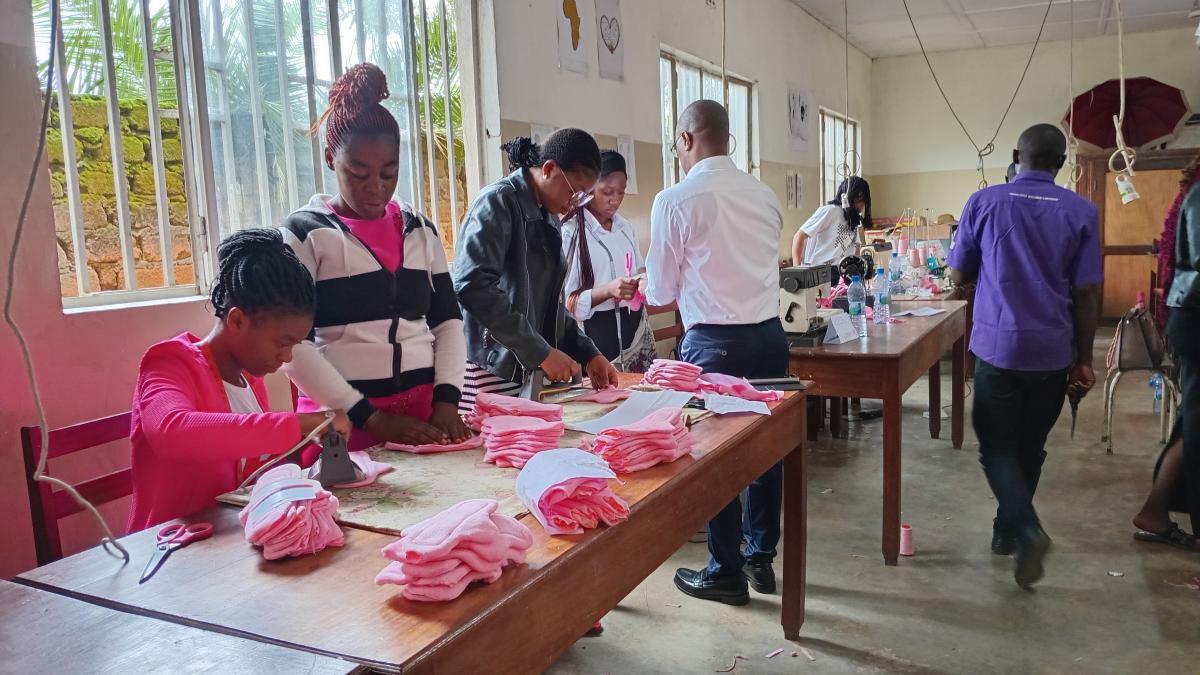
Vers une santé menstruelle digne en RDC : l’impact de la formation
Paola VANGU TSAKALA | 09/01/2026
Santé menstruelle durable en RDC : la formation comme levier de dignité et d’autonomisationDu 17 au 28 novembre 2025, les provinces éducationnelles Haut-Katanga 1 et 2 ont organisé une formation de 12 jours à l’intention de 16 artisans, dont 15 femmes et un homme, originaires de Likasi, Kambove, Kasenga et Lubumbashi. Le Haut-Katanga est depuis 2015 une province de la république démocratique du Congo à la suite de l'éclatement de la province du Katanga 1. Il se situe au sud-est du pays, à la frontière avec la Zambie (botte du Katanga).Cette session de renforcement des capacités a porté sur des thématiques essentielles, notamment la santé menstruelle et l’hygiène intime durable, les techniques de confection de serviettes hygiéniques lavables, ainsi qu’une initiation à l’entrepreneuriat, afin de favoriser l’autonomie économique des participants. À l’issue de la formation, 1.600 serviettes hygiéniques lavables et réutilisables ont été confectionnées. Cette initiative vise à offrir une solution durable et accessible pour améliorer la santé menstruelle au sein des communautés, en facilitant l’accès à des produits hygiéniques abordables, écologiques et réutilisables pour les filles et les femmes. Au-delà de l’impact sanitaire, cette action contribue également à la création d’opportunités économiques pour les artisans formés, en renforçant leurs compétences techniques et entrepreneuriales. « Lorsque nous avons entamé cette formation, la plupart d’entre nous ignoraient les techniques de confection de serviettes hygiéniques lavables. Aujourd’hui, nous maîtrisons un savoir-faire essentiel et disposons d’une solution concrète pour améliorer les conditions de vie de nombreuses femmes et jeunes filles. Nous repartons non seulement avec les serviettes produites, mais surtout avec la fierté de fabriquer un produit utile, écologique et qui redonne de la dignité »,Nday Mwenze Laurianne, apprenante et artisane à Lubumbashi. La clôture de la formation a été marquée par la remise d'attestations de participation et de kits de démarrage aux artisans, afin de les soutenir dans le lancement de leurs activités. Une remise symbolique de kits hygiéniques aux élèves du lycée Wema a également été effectuée, témoignant d'un engagement ferme en faveur de la dignité et du bien-être de toutes.
-
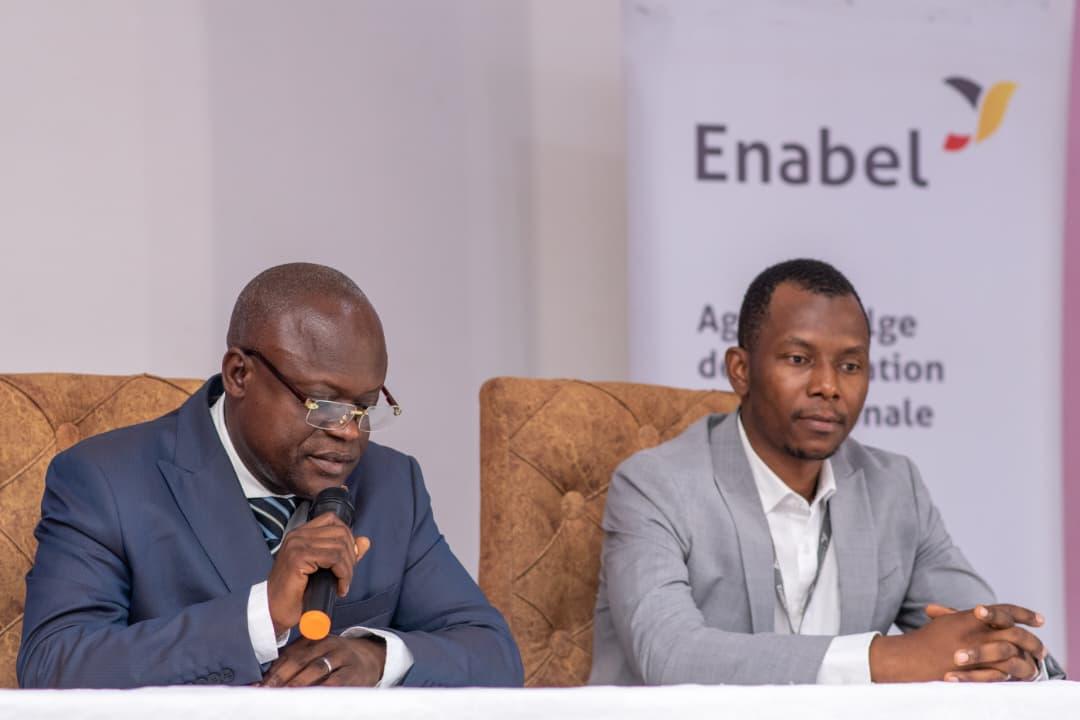
RDC : former les moto‑taxis, sécuriser la mobilité urbaine
Paola VANGU TSAKALA | 08/01/2026
À Lubumbashi , les moto-taxis jouent un rôle essentiel dans le désenclavement des quartiers difficiles d'accès et constituent une alternative rapide face à la saturation des transports urbains. Toutefois, la méconnaissance du code de la route par certains conducteurs demeure une source majeure d' insécurité routière pour les usagers. Afin de renforcer les compétences des conducteurs et de promouvoir un travail décent dans un secteur largement informel , plus de 80 moto-taximens , issus de différentes associations de la ville, ont suivi une formation d'un mois , clôturée début novembre à l' Institut National de Préparation Professionnelle (INPP) , partenaire de cette initiative. Le programme de formation, spécialement conçu pour répondre aux réalités du secteur, a couvert plusieurs thématiques clés, notamment (1) le code de la route et la réglementation routière, (2) l' entretien des motos et les notions de mécanique de base , (3) la prise en charge des clients ainsi que (4) les bases de la gestion financière . En renforçant la professionnalisation des moto-taxis, cette initiative contribue à l'amélioration durable de la sécurité routière , à la qualité des services offerts aux usagers et à la valorisation des métiers de la mobilité urbaine à Lubumbashi.
-
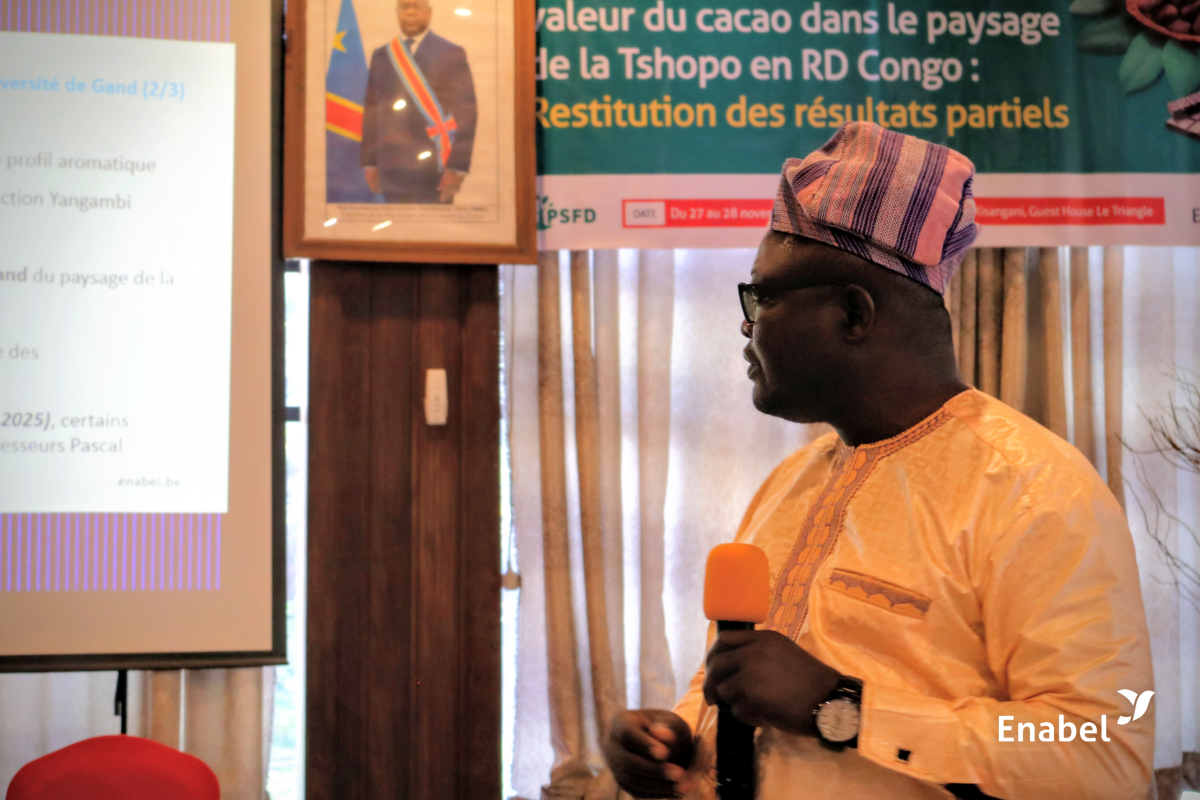
En RDC : La recherche au service d’un cacao d'excellence à la Tshopo
Paola VANGU TSAKALA | 08/01/2026
Lors de la séance de restitution des premiers résultats, tenue du 27 au 28 novembre , le professeur Koen Dewettinck , expert en transformation du cacao, a mis en lumière la complexité du processus de fabrication d'un chocolat de qualité . Celui-ci repose sur une chaîne rigoureuse allant de la sélection des variétés à la fermentation , au séchage , à la torréfaction , au concassage et enfin au tempérage . L'expert a insisté sur l'importance cruciale du contrôle de la fermentation , étape déterminante dans la formation des arômes, tout en alertant sur les pertes de qualité liées à un séchage mal maîtrisé . Selon lui, la transformation locale du cacao constitue un levier stratégique pour créer davantage de valeur ajoutée et d'emplois en République Démocratique du Congo. « Il n'y a pas de chocolat belge sans cacao de qualité provenant des pays producteurs. Aujourd'hui, avec un prix atteignant 6 000 euros la tonne , la RDC dispose d'une opportunité unique qu'elle doit impérativement saisir », a-t-il souligné.Des résultats prometteurs pour un cacao de fine saveurLa dégustation des variétés issues des parcelles expérimentales de la Tshopo (*) a révélé des profils aromatiques fruités, floraux et légèrement boisés , caractéristiques des fins cacaos. Ces résultats partiels confirment le fort potentiel de la région à produire un cacao de haute qualité, à condition de (1) renforcer la formation des producteurs, (2) structurer durablement les organisations paysannes et (3) améliorer l' accès aux marchés. Une collaboration scientifique pour repositionner la TshopoDepuis novembre 2023 , Enabel collabore avec l'Université de Gand afin de renforcer l'ensemble de la chaîne de valeur du cacao dans le paysage de la Tshopo . Cette coopération scientifique vise à repositionner la province comme une région productrice de cacao de fine saveur , capable de se distinguer sur le marché international. À travers la science, la recherche et l'innovation , cette dynamique ouvre la voie à une Tshopo reconnue comme pôle de référence en cacao de qualité et en transformation chocolatière compétitive , au bénéfice des producteurs, de l'économie locale et du développement durable.(*) La Tshopo est une province de la République Démocratique du Congo, issue du démembrement de l'ancienne Province Orientale. Son chef-lieu est Kisangani.
-
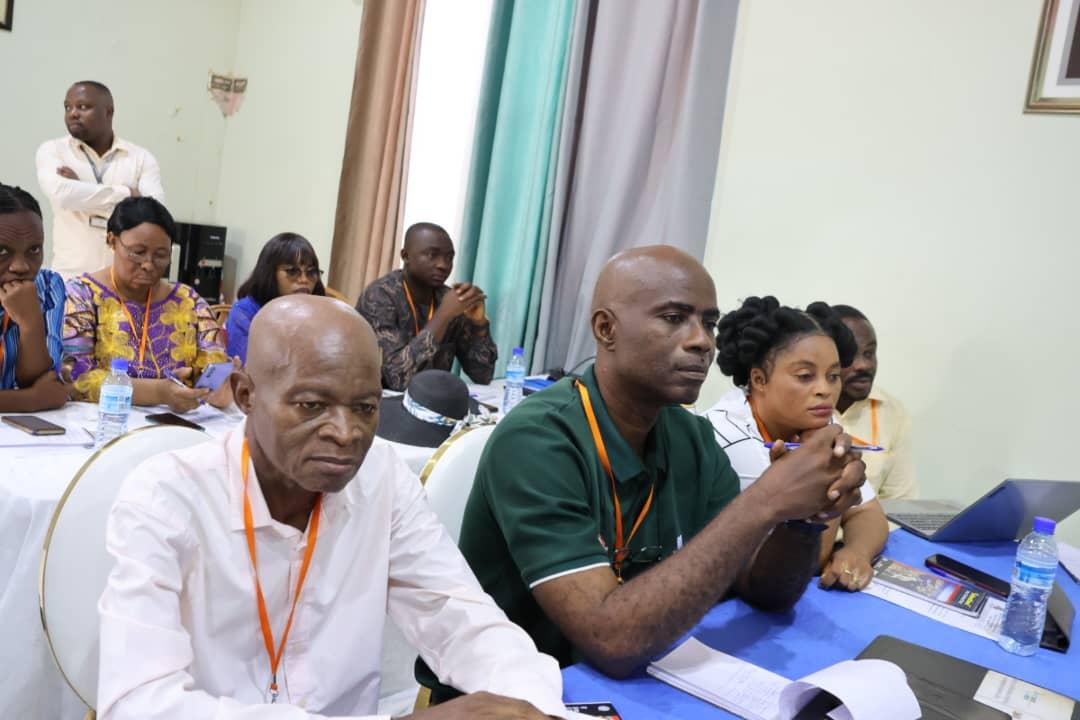
En RDC : installation d'un nouveau Conseil pour renforcer la gouvernance agricole
Paola VANGU TSAKALA | 08/01/2026
Le Gouvernement provincial de la Lomami a procédé, le 26 novembre , à l'installation officielle du Conseil Consultatif Provincial de l'Agriculture (CCPA), sous la présidence du Vice-Gouverneur et Gouverneur ad intérim, Célestin Kayembe Tshiaj Tshibola. La cérémonie s'est tenue en présence des ministres provinciaux du Plan, de la Décentralisation et de l'Aménagement du territoire , ainsi que de l' Agriculture, témoignant de l'importance stratégique accordée au secteur agricole. Le CCPA constitue un cadre de concertation et de coordination visant à décentraliser la réflexion, la prise de décision et le suivi des politiques agricoles au niveau des entités territoriales. Il promet une gouvernance participative et inclusive , fondée sur l'implication active des autorités locales, des services techniques, des producteurs et des autres parties prenantes du secteur agricole.Cette initiative s'inscrit dans le processus d'élaboration d'une stratégie provinciale de développement agricole , destinée à renforcer les mécanismes d'échanges, à stimuler la production et à contribuer durablement à la sécurité alimentaire de la population lomamienne, confrontée aux défis de la famine et de l'insécurité alimentaire. Des actions concrètes traduisent déjà cette dynamique, notamment le lancement récent de la campagne agricole de la saison B , accompagné de la distribution d'engrais et de matériels agricoles . Ces interventions devraient avoir un impact direct sur l'amélioration des rendements et des conditions de vie des ménages agricoles de la province.
-
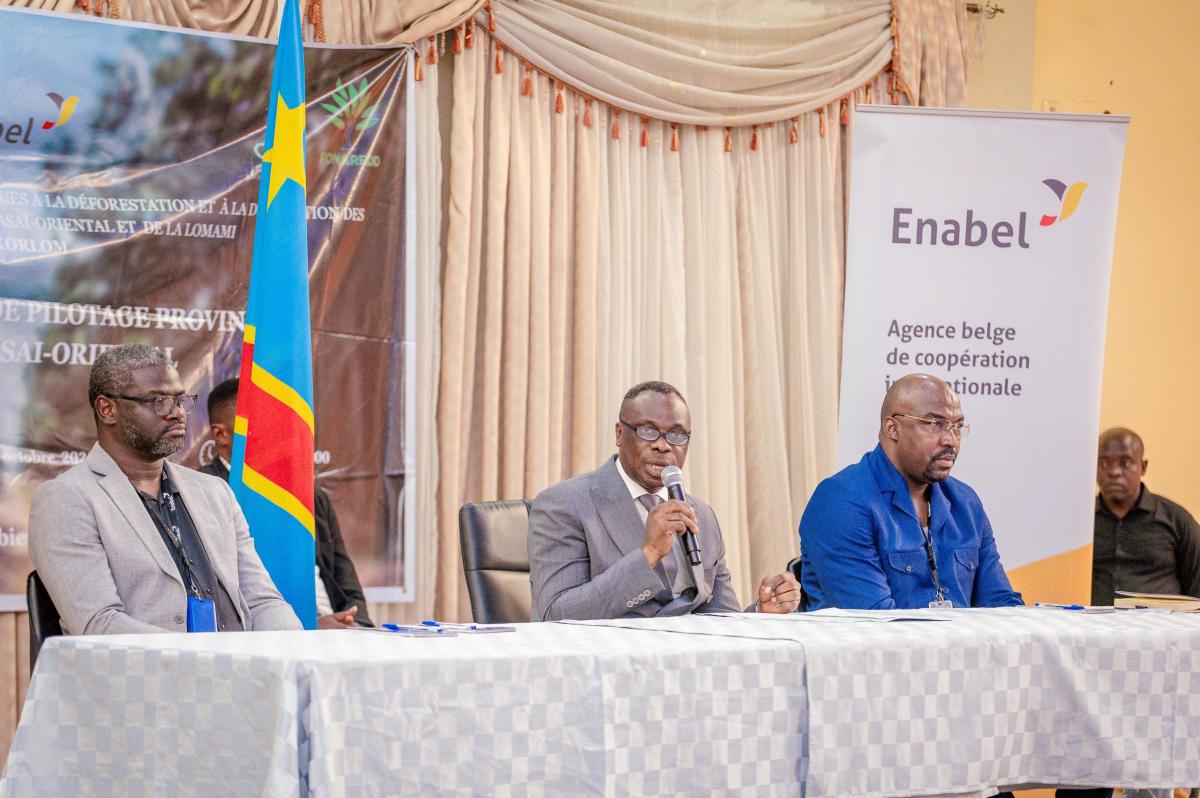
En RDC : renforcer la gouvernance scolaire pour une éducation de qualité
Paola VANGU TSAKALA | 08/01/2026
Améliorer la qualité de la gouvernance scolaire constitue un levier essentiel pour renforcer l'accès à une éducation de base de qualité dans la province du Sud-Ubangui. Cet objectif figure au cœur des priorités du projet Edubase , qui a organisé, au début du mois de novembre 2025 , une session de formation à l'intention des chefs d'établissements du primaire et du secondaire .Cette formation visait à harmoniser la compréhension des procédures administratives et pédagogiques, tout en renforçant les capacités des responsables scolaires en matière de gestion. Les échanges ont notamment porté sur la clarification des rôles et responsabilités des acteurs éducatifs , la mise en œuvre de mécanismes efficaces de suivi-évaluation , ainsi que l'intégration d'approches participatives dans la gouvernance des établissements. Pour les participants, cette session a permis de lever de nombreuses incompréhensions. « Avant, certaines notions étaient confuses. Aujourd'hui, j'ai compris qu'une bonne gestion scolaire implique aussi une culture de transparence et de redevabilité, ainsi qu'une collaboration franche avec les parents, la communauté et les instances administratives, notamment l'inspection », témoigne Rose Sawi , directrice de l'École primaire III. En renforçant les compétences des chefs d'établissements, cette initiative contribue à la consolidation d'un système éducatif inclusif et performant dans la province du Sud-Ubangui. Elle ouvre également la voie à une gestion scolaire moderne, centrée sur l'intérêt supérieur de l'élève et l'amélioration durable de la qualité des apprentissages.
-
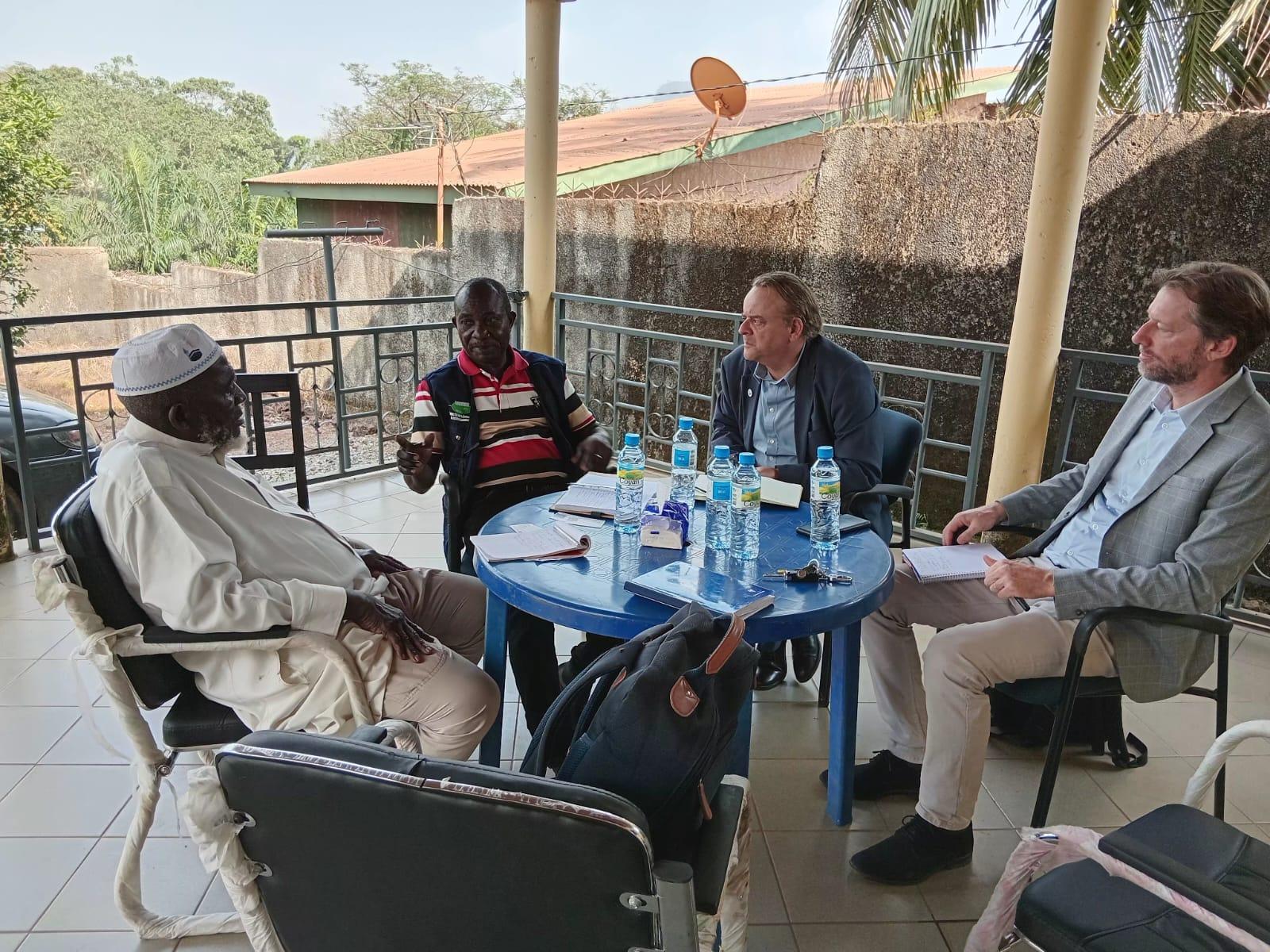
En Guinée : unir les acteurs pour un pastoralisme plus fort
Aminata KANE | 07/01/2026
Dans le cadre du démarrage opérationnel du Programme Régional de Développement de l’Économie Pastorale en Afrique de l’Ouest et au Sahel (PRADEP-AOS), financé par l’Union européenne et mis en œuvre par Enabel, deux voyages de service ont été conduites au Sénégal (octobre 2025) et en Guinée (novembre 2025) pour ancrer le programme dans les dynamiques nationales du Couloir Ouest.Des partenariats concrets au SénégalAu Sénégal, la mission a permis d’identifier des synergies fortes avec les acteurs du secteur de l’élevage, notamment autour de la Laiterie du Berger, de la Maison des Éleveurs et des services techniques de l’État. Les échanges ont ouvert des perspectives d’actions concrètes sur la production laitière pastorale, l’aliment bétail, la santé animale, la structuration des organisations d’éleveurs et la prévention des conflits liés à la mobilité pastorale.Le voyage a également renforcé les complémentarités avec les projets Enabel en cours, dans une logique de cohérence et d’impact.Un dialogue institutionnel structurant en GuinéeEn Guinée, les rencontres avec les autorités, les partenaires techniques, les organisations professionnelles et la recherche ont confirmé la pertinence du Programme PRADEP-AOS dans un contexte marqué par des enjeux sensibles de transhumance et de gestion des ressources pastorales. Le programme est perçu comme un levier clé pour accompagner les politiques publiques, renforcer les capacités nationales et promouvoir une approche régionale concertée.Une dynamique régionale en marcheCes deux missions ont posé les fondations d’une mise en œuvre concertée du PRADEP-AOS, fondée sur le partenariat, l’ancrage institutionnel et la valorisation économique du pastoralisme. Le programme s’inscrit ainsi comme un outil structurant au service de la résilience, de la stabilité et du développement durable des territoires pastoraux du Couloir Ouest.
-
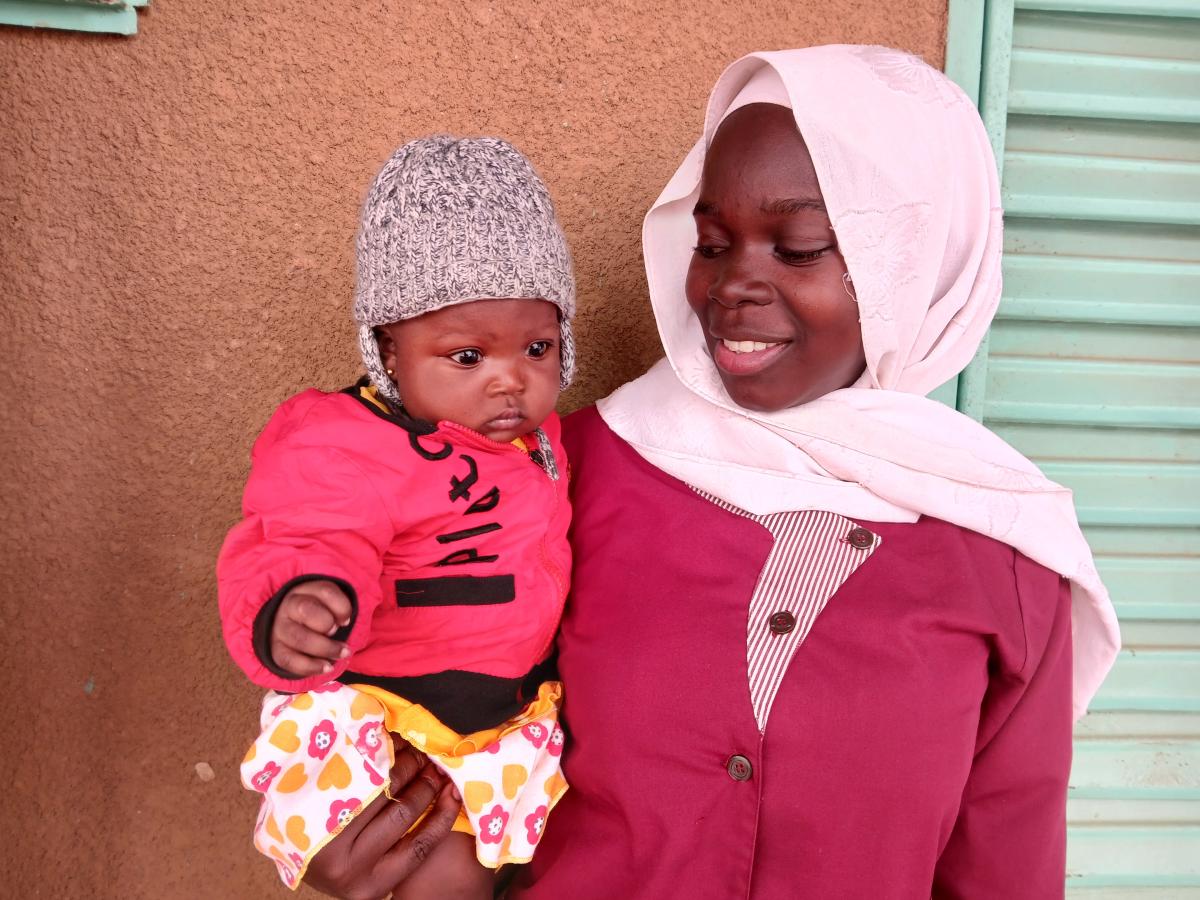
AleDia in Mali: When digital innovation becomes a lever for women’s autonomy and children’s health.
Alice BONJEAN | 06/01/2026
Imagine a health centre in Mali. During a post-deployment follow-up, a child arrives at the Kokry centre showing signs of pneumonia. Unfortunately, an inadequately trained volunteer diagnoses simple malaria and administers an inappropriate treatment. The child’s condition does not improve. During a re-evaluation, an algorithm identifies severe pneumonia, enabling the health worker to correct the initial error. Thanks to this correction, the child finally receives the right treatment and recovers, as confirmed by the parents. Behind this reality lies AleDia, a digital social innovation that improves care and follow-up in certain health centres. This solution helps to make accurate diagnoses and ensure appropriate treatment, thereby reducing the risks linked to medical errors. Faced with the persistent challenges of malnutrition and child mortality, Terre des Hommes has developed AleDia: a Clinical Decision Support Algorithm (CDSA) installed on tablets. With support from Belgium through the Wehubit 2.0 programme, Terre des Hommes aims to replicate this solution in other districts, notably in Markala, Mali.Gender as a strategic pillarBecause children’s health also depends on women’s autonomy, AleDia integrates gender as a strategic pillar. In Malian communities, women are primarily responsible for children’s health, yet they face obstacles: lack of information, limited decision-making power, and social constraints. In response, the AleDia project decided to act on three fronts: Empowering mothers so they better understand care and actively participate in their child’s medical follow-up. Strengthening female health workers through tailored training translated into local languages. They also receive support to overcome barriers linked to their status or level of education. Engaging men through awareness sessions on positive parenting to promote shared responsibilities within families. Kadidiatou: A story of renewed autonomyKadidiatou Traoré, a Health Practitioner at the Kirango centre, shares: “Before AleDia, it was difficult to follow up on a child during consultations. Without archiving, accessing records was impossible if the Technical Director wasn’t there. Today, thanks to the tablet, I can consult alone, follow the protocol, prescribe without hesitation. I feel autonomous and efficient. When I see children return healthy, I feel valued.” AleDia has also transformed relationships with families: “At first, mothers thought we were playing with the tablet. Now, they ask us to use it. This has strengthened trust and increased attendance at the centre.”Towards real equalityKadidiatou insists: “Women must be counted and recognised as important. They need access to training and real responsibilities. Everything men can do, women should be able to do too. We have the capabilities, provided we are trusted.” Her testimony highlights a major issue: in the Markala district, only two women manage a centre out of twenty. Among the eight structures covered by AleDia, just one woman holds this role.Innovation for lasting changeFor Dramane, AleDia Project Manager : “Innovation only makes sense if it benefits everyone. By integrating gender, AleDia doesn’t just save lives; it reduces inequalities and strengthens women’s autonomy.”AleDia proves that by combining technology and equality, we can build a future where every child has access to quality care and every woman has a recognised role.AleDia is funded by Belgium under the Wehubit 2.0 programme. It is a Terre des Hommes project, supported by the Innovation Hub, which aims to scale the initiative by replicating this model across additional regions in Mali.
-
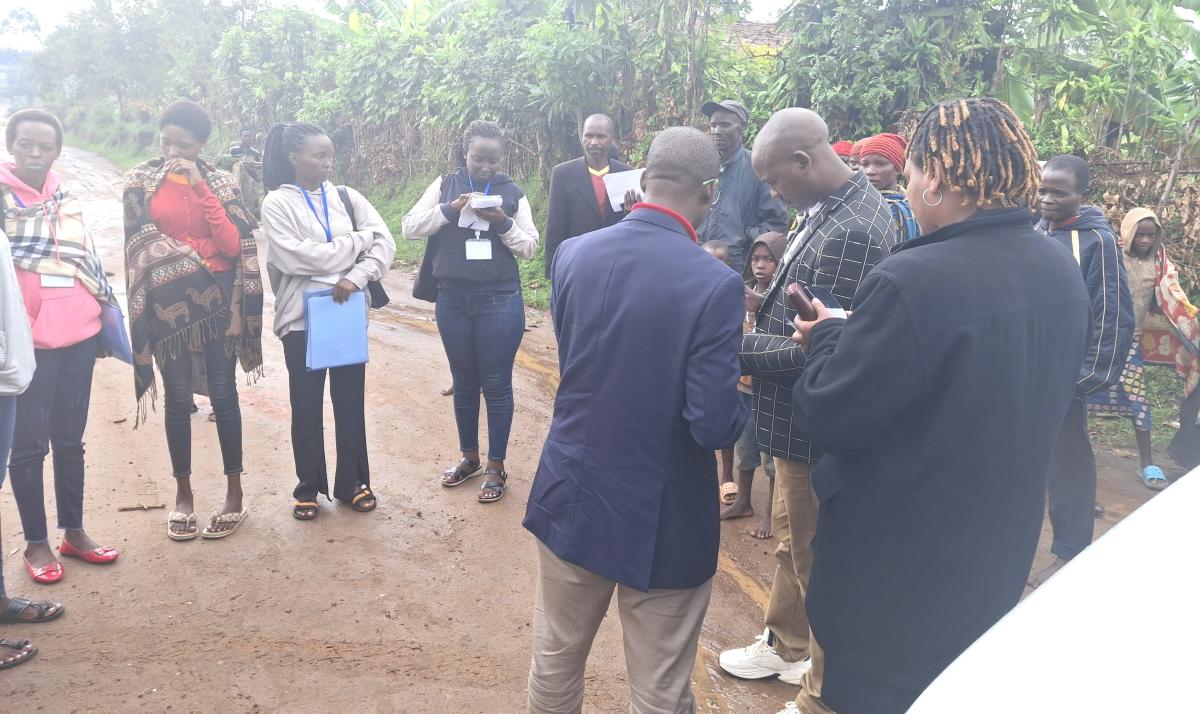
Burundi : Enabel appuie la réalisation de la première enquête nationale de Santé mentale
Jean BIRONKWA | 06/01/2026
La santé mentale constitue aujourd’hui un enjeu majeur de santé publique, longtemps sous-estimé malgré son impact considérable sur le bien-être des individus, la cohésion sociale et le développement socio-économique. Au Burundi, la disponibilité de données fiables et représentatives sur la santé mentale demeure un défi important. C’est pour répondre à cette lacune que le Ministère de la Santé Publique, avec l’appui d’Enabel, l’Agence belge de coopération internationale, à travers le Programme PAREX, réalise la première Enquête nationale sur la santé mentale au Burundi (ESMB) du 04 au 21 décembre 2025. L’ESMB vise à produire des données exhaustives sur la prévalence des troubles mentaux, les facteurs de risque associés, ainsi que sur l’accessibilité et la qualité des services de santé mentale à l’échelle nationale. Elle couvre l’ensemble des provinces du pays et repose sur une méthodologie rigoureuse combinant des enquêtes auprès des ménages, des formations sanitaires et des acteurs clés du système de santé. Les résultats attendus permettront d’orienter les politiques publiques, de renforcer l’intégration de la santé mentale dans les soins de santé primaires et de mieux planifier les ressources humaines, financières et matérielles nécessaires. Au-delà de la collecte des données, la qualité et la crédibilité des résultats reposent sur le respect strict des exigences méthodologiques, éthiques et opérationnelles définies dans le protocole de l’enquête. C’est dans ce cadre qu’une mission conjointe de supervision de terrain a été menée par les équipes du ministère de la Santé Publique, à travers le Programme National de Lutte contre les Maladies Non Transmissibles, et d’Enabel, Programme Santé. Cette mission de suivi technique avait pour objectif d’apprécier la conformité du déroulement de la collecte des données avec le protocole validé, tant au niveau communautaire que dans les formations sanitaires. Les observations effectuées ont mis en évidence une bonne maîtrise des outils de collecte des données, le respect des procédures d’échantillonnage, ainsi qu’une application rigoureuse des principes éthiques, notamment l’obtention du consentement éclairé et la garantie de la confidentialité des informations recueillies. La population rencontrée s’est montrée globalement réceptive et coopérative, témoignant de l’intérêt porté à cette initiative nationale. La supervision a également permis d’identifier certains défis opérationnels, notamment liés à l’accessibilité de certaines zones, et de formuler des recommandations concrètes à l’attention des équipes d’enquête pour la poursuite de la collecte. Cet exercice de suivi conjoint illustre l’importance de la coordination, de la redevabilité et de l’apprentissage continu dans la mise en œuvre d’enquêtes nationales complexes. En soutenant cette première Enquête nationale sur la santé mentale, Enabel réaffirme son engagement pour le renforcement du système de santé et la promotion d’une prise de décision fondée sur des données probantes. Les résultats de cette enquête constitueront une base essentielle pour améliorer durablement la prise en charge de la santé mentale et contribuer au bien-être de la population burundaise.
-
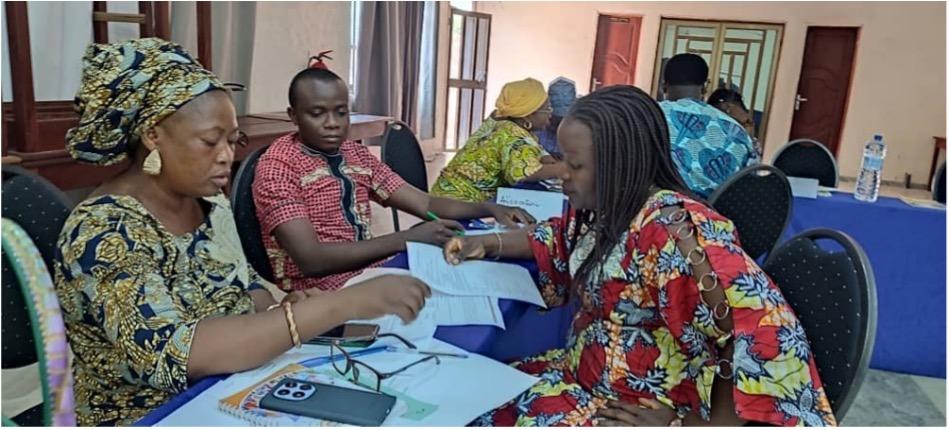
On ne naît pas parent… on apprend à le devenir. Bienvenue à l’école des parents
Reece-hermine ADANWENON | 25/12/2025
Mariama fixe le sol de la cour du collège. Dans quelques minutes, elle franchira le portail, non pas pour accompagner sa fille de 14 ans, mais pour elle-même. Pour apprendre. Pour oser parler de ce dont on ne parle jamais. Dans dix collèges d'enseignement général de Parakou et N'dali, une petite révolution est en marche. Avec l'appui d'Enabel à travers le projet P@SRIS II et la contribution du Ministère de la Santé, des parents comme Mariama ont désormais leur propre école : l'École des Parents. Un espace où le silence pesant autour de la santé sexuelle des adolescents commence enfin à se briser.Les chiffres parlent d'eux-mêmes et racontent une histoire que beaucoup préfèrent ignorer. Au Bénin, une adolescente sur cinq a déjà commencé sa vie reproductive. À 19 ans, près de la moitié des jeunes filles ont entamé leur vie féconde. Derrière ces statistiques se cachent des rêves interrompus, des parcours scolaires abandonnés, des vies bouleversées. Pourtant, dans les familles, le silence règne. Comment parler de la puberté, de règles, de sexualité ? Comment aborder ces sujets sans gêne, sans tabou, sans transmission de peur ? La plupart des parents se sentent démunis, prisonniers d'une éducation qui leur a appris à se taire sur ces questions essentielles.Un espace de libération et d'apprentissageL'École des Parents n'est pas une salle de classe traditionnelle. Ici, pas de notes, pas de jugement, pas de leçons moralisatrices. Juste un cercle de chaises, des facilitateurs bienveillants et des parents qui osent enfin dire : "Je ne sais pas comment faire."Dans cet espace sécurisé, les échanges prennent vie. On y apprend à dialoguer avec ses enfants, à comprendre les bouleversements de la puberté, à parler d'hygiène corporelle sans détour. On y découvre comment aborder les sujets délicats : le harcèlement scolaire, les violences basées sur le genre, la prévention des grossesses précoces et des IST-VIH.Les parents explorent aussi des territoires moins attendus mais tout aussi cruciaux : la répartition équitable des tâches ménagères pour briser les stéréotypes de genre, les codes vestimentaires sans culpabilisation, le respect du consentement et le droit de dire non.Des outils concrets pour un changement réelLa force de cette initiative réside dans son approche pratique. Les facilitateurs formés ne se contentent pas de transmettre des informations. Ils organisent des simulations, des jeux de rôles, des travaux de groupe. Les parents s'exercent à tenir ces conversations difficiles, testent des phrases, partagent leurs inquiétudes et leurs réussites."Comment commencer une discussion sur les règles avec ma fille ?" "Que dire à mon fils sur le respect des filles ?" "Comment réagir si mon adolescent me parle de sexualité ?" Ces questions, longtemps conservées sans réponse, trouvent ici un espace d'exploration collective.L'approche vise trois transformations majeures : éveiller une prise de conscience chez les parents sur leur rôle crucial, renforcer leurs compétences éducatives concrètes, et promouvoir un nouveau modèle de parentalité adapté aux défis contemporains.Dans les dix collèges concernés, l'École des Parents est désormais opérationnelle. Les premières séances d'animation avec les parents ont commencé, créant une nouvelle dynamique au sein des communautés éducatives.Les témoignages affluents déjà. Des mères qui, pour la première fois, ont pu parler ouvertement de menstruation avec leurs filles. Des pères qui comprennent mieux les changements émotionnels de leurs adolescents. Des parents qui se sentent enfin légitimes et outilslés pour accompagner cette période si délicate de la vie de leurs enfants.Au-delà des individus, c'est toute une culture du dialogue qui s'installe progressivement. Les tabous reculent. La communication parent-enfant se renforce. Les adolescents se trouvent en leurs parents des alliés informés plutôt que des gardiens silencieux.Dans le département du Couffo aussi, le dialogue familial reprend ses droitsPendant que l'École des Parents transforme les pratiques éducatives à Parakou et N'dali, une dynamique similaire s'installe dans le département du Couffo, avec une approche complémentaire : la formation de formateurs professionnels.À l'hôtel Immaculé, 12 assistants sociaux et 6 sages-femmes ont été formés pour animer six écoles pilotes qui accueilleront chacune une quarantaine de parents d'élèves et d'apprentis. Cette stratégie renforce la démarche en intégrant directement les professionnels de la santé et du social dans l'accompagnement parental.Pendant trois mois, ces animateurs professionnels conduiront 12 séances éducatives hebdomadaires autour de sept modules structurés : santé sexuelle et reproductive, développement de l'enfant, prévention des pratiques néfastes, genre, droits de l'enfant et communication bienveillante. Une feuille de route précise a été élaborée, et les parents participants présentent une attestation valorisant leur engagement.Cette approche par les professionnels de la santé et du social dans le Couffo complète efficacement le dispositif des facilitateurs communautaires dans le Borgou et l'Alibori, créant ainsi un maillage territorial solide pour faire du dialogue parent-enfant une réalité dans tout le pays.Vers un nouveau modèle éducatifCette initiative portée par le Ministère de la santé avec l'appui d'Enabel à travers le P@SRIS II représente bien plus qu'une série d'ateliers. C'est un pari sur l'avenir : celui d'une génération d'adolescents mieux informés, mieux protégés, mieux accompagnés.En brisant le silence, en équipant les parents d'outils concrets, en créant des espaces de parole bienveillants, l'École des Parents trace la voie d'une éducation à la santé sexuelle enfin assumée, normalisée, démocratisée. Car comme le dit si bien le principe fondateur de cette initiative : il n'existe pas d'école pour devenir parent, mais aujourd'hui, chaque parent a besoin d'aller à l'école des parents. Pour apprendre, pour grandir, pour accompagner.
